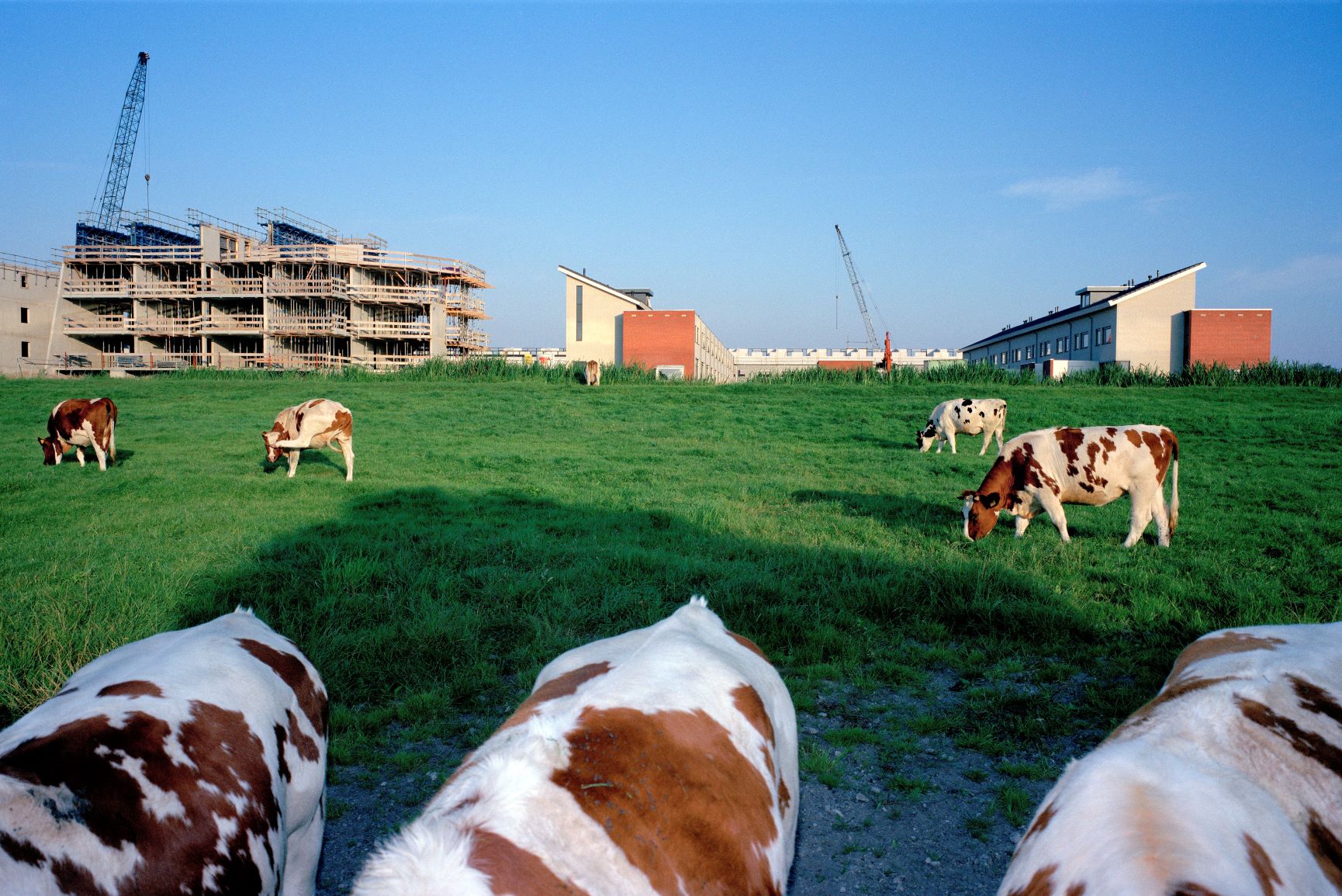Bridging the Implementation Gap
Rli - february 2024Background and request for advice
The Netherlands faces major challenges in the physical living environment, such as building large numbers of homes or dealing with the consequences of a changing climate. Some of these challenges have been ongoing for decades, and they are becoming increasingly urgent, with the term “crisis” being used more and more frequently. Although policy objectives and measures have been defined in numerous areas, they are often not implemented, or not fully or on time. There are all sorts of plans, but nothing much actually comes of them.
This failure to achieve government goals in so many important policy fields – or to do so fully or on time – calls for further analysis. Why are the matters agreed on as policy not actually being implemented, or only far too late? Why is actual implementation so problematical? If it is clear exactly where the impediments lie, then one can “twist the right control knobs” so as to bring about improvement. In the light of these considerations, we formulated the following questions for this report to answer:
The main question addressed in this advisory report is “Just what are the impediments to implementing policy for the living environment? How can implementation be improved so as to achieve the goals of policy for the living environment?”
Explanation
For the purpose of this advisory report, we conducted ten case studies on implementation problems within the domain of the physical living environment. On that basis, we identified five impeding factors that complicate and delay implementation of policy, often simultaneously:
- Accumulation, and hence complexity, of policy
- Hesitancy about taking the necessary steps
- Inadequate organisation of implementation
- Unequal distribution of costs and benefits
- Structural scarcity of human resources (HR)
Our main recommendation focuses on placing policy and implementation on an equal footing. This recommendation forms a kind of overarching umbrella above our other recommendations:
Place policy and implementation on an equal footing
- We advocate a radical reappraisal of implementation, with policy-makers and implementing parties being placed on an equal footing.
- When drawing up policy measures, maximum use should be made of insights derived from actual implementation.
- Implementing parties must be able to indicate authoritatively the conditions under which policy is actually capable of implementation.
- Placing policy and implementation on an equal footing and actually implementing policy plans will contribute to public trust in government.
Our other recommendations for dealing with impediments when tackling challenges in the physical living are:
Give implementing parties a structural role in policy development
- Action is needed to involve implementers as an equal party in policy development right from the initiation phase.
- Central government implementing organisations must be involved, as standard, in consultations between top-level civil servants.
- The Rli also envisions an important role for the Secretary-General (SG) of each policy department, who should ensure that other parties that contribute to implementation are also involved in policy development at an early stage.
- Safeguards are needed to prevent local and regional authorities being assigned implementation objectives without adequate funding, for example. This requires a strong coordinating role on the part of the Minister of the Interior and Kingdom Relations (MinBZK) in allocating objectives within local and regional authorities, for example by requiring him or her to co-sign policy plans in order to prevent local and regional authorities being overburdened or under-represented during policy development.
- Given that many challenges need to be successfully tackled in the various regions of the country, it is important for the Minister to enhance administrative cooperation at regional level.
Work, organise, and draw up a shared agenda based on the objective concerned
- Policy accumulation will be less of a problem if the implementing parties have a clear idea of what the shared ambitions and goals actually are.
- A clear statement of the objective concerned will assist in organising and prioritising accumulated policies. A shared agenda can then be drawn up on that basis.
- The strategies on spatial planning and the environment set out in the new Environment and Planning Act [Omgevingswet] can assist in this. They are by far the best way, after all, to articulate the narrative of the objective, area, or region concerned.
Divide up roles, tasks, and relationships based on the specific objective concerned
- The underlying problem in many cases of implementation failure is that it is unclear to the policy-makers and implementers which of them should take action when it comes to choices about priorities and the allocation of funds.
- It is crucial for there to be clear arrangements regarding these points at the interface between policy and implementation, on an issue-by-issue basis.
Organise cooperation in such a way that implementers feel confident about taking decisions, even in the face of uncertainties
- It is important to develop a setting in which parties feel confident enough – even when the situation becomes tense – to seek solutions and take difficult decisions.
- This means that arrangements are needed regarding the culture of cooperation.
- Trust and transparency need to be at the heart of cooperation so that dilemmas, doubts, and uncertainties can be raised for discussion unhindered.
Find ways to determine the costs and benefits of objectives in the living environment more accurately and to distribute them better
- When working on objectives in the living environment, benefits often “drain away” or revenues end up with parties that do not contribute to a given development. This hampers a proactive approach.
- Greater attention needs to be paid to sharing knowledge when applying land policy mechanisms, such as compulsory purchase or the establishment of municipal preferential rights.
- More attention also needs to be paid to innovative ways of financing projects in the living environment.
Adopt a smart approach to dealing with the structural scarcity of human resources
- The scarcity of human resources is structural and unavoidable.
- It is therefore necessary to adopt a smart approach to dealing with that scarcity, thus making it possible to both alleviate the scarcity itself and greatly reduce the problems that it causes.
- Creating a pool of experts and sharing know-how and specialists (regionally) can provide a solution.
- More can also be done to standardise the work involved.
Schedule
The Rli published its advisory report “Bridging the implementation gap: tackling factors impeding policy for the physical living environment” on 19 December 2023. The advisory report was submitted that same day to the Ministers of the Interior and Kingdom Relations, Infrastructure and Water Management, Agriculture, Nature and Food Quality, the Minister of Economic Affairs and Climate, the Minister for Climate and Energy, and the Presidents of the Senate and the House of Representatives.
More information
For more information about the advisory report or to comment, please contact Bart Swanenvleugel, at bart.swanenvleugel@rli.nl, or on +31 (0)6 52012691.
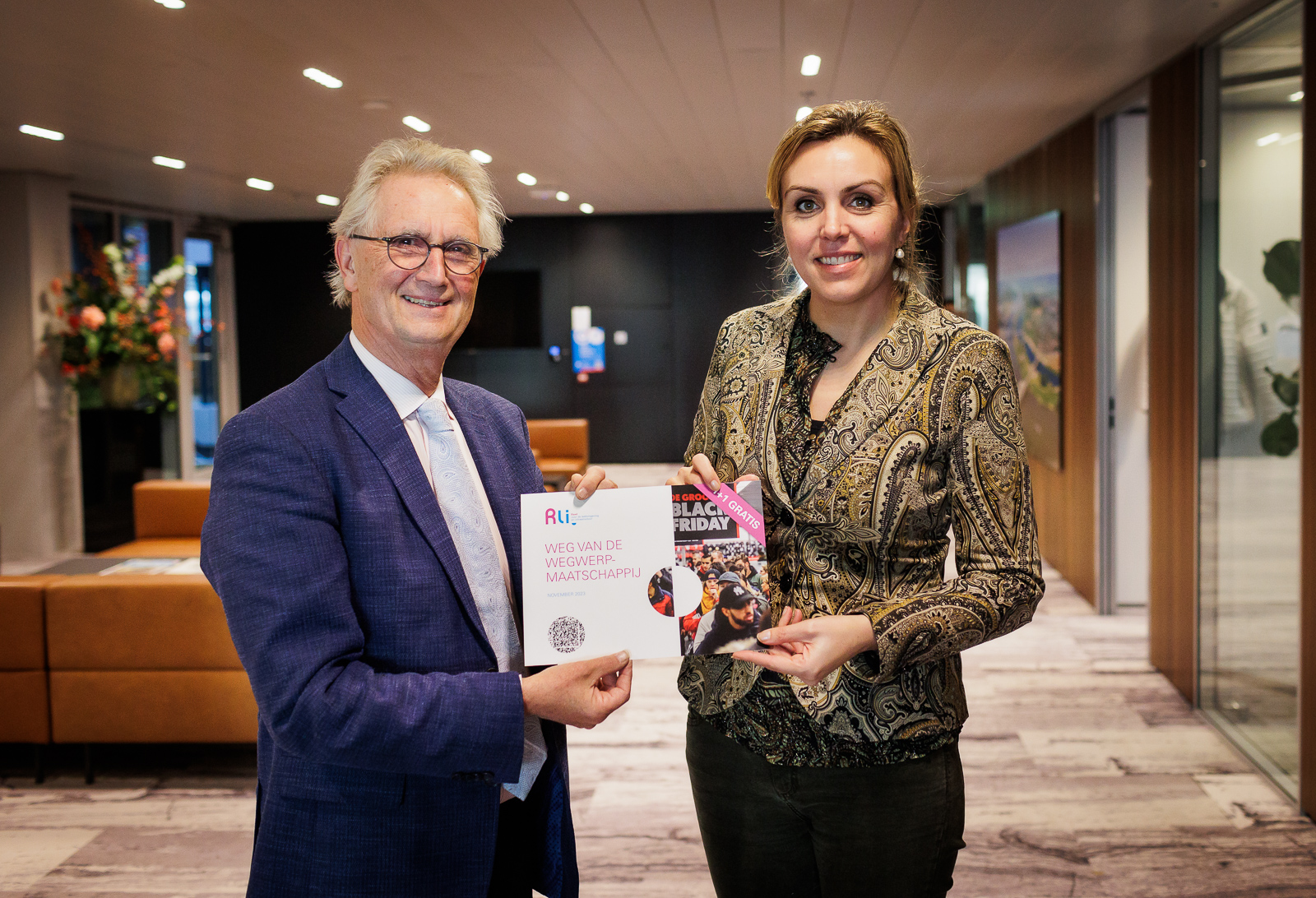
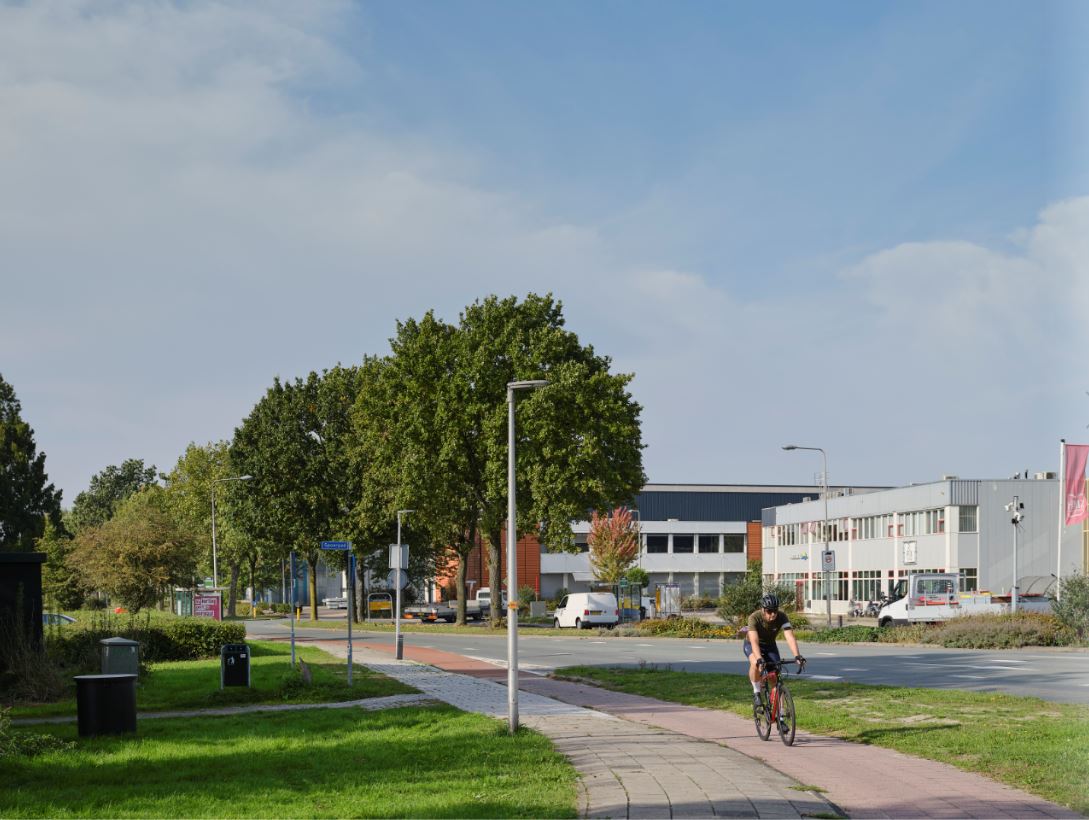
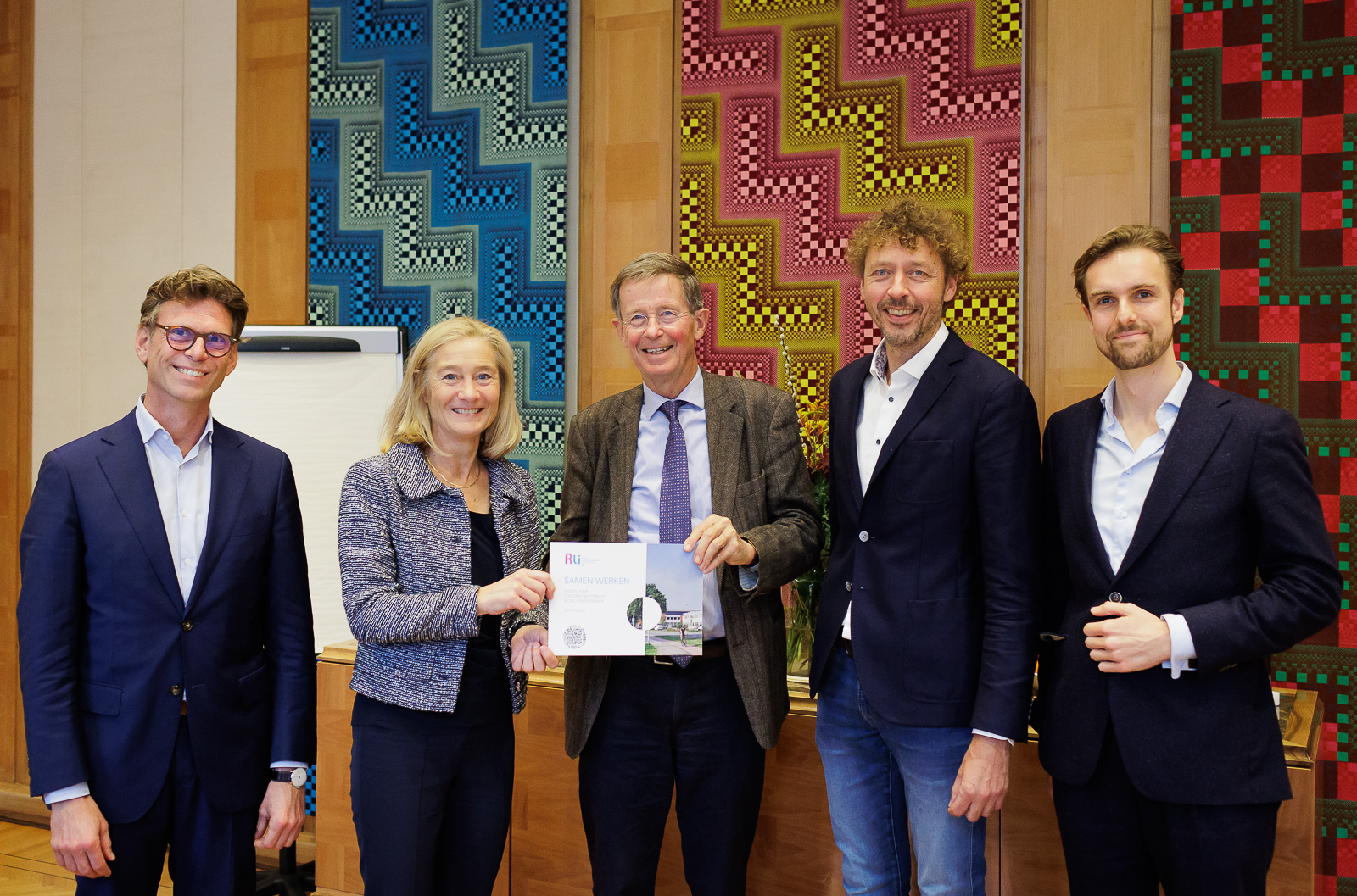

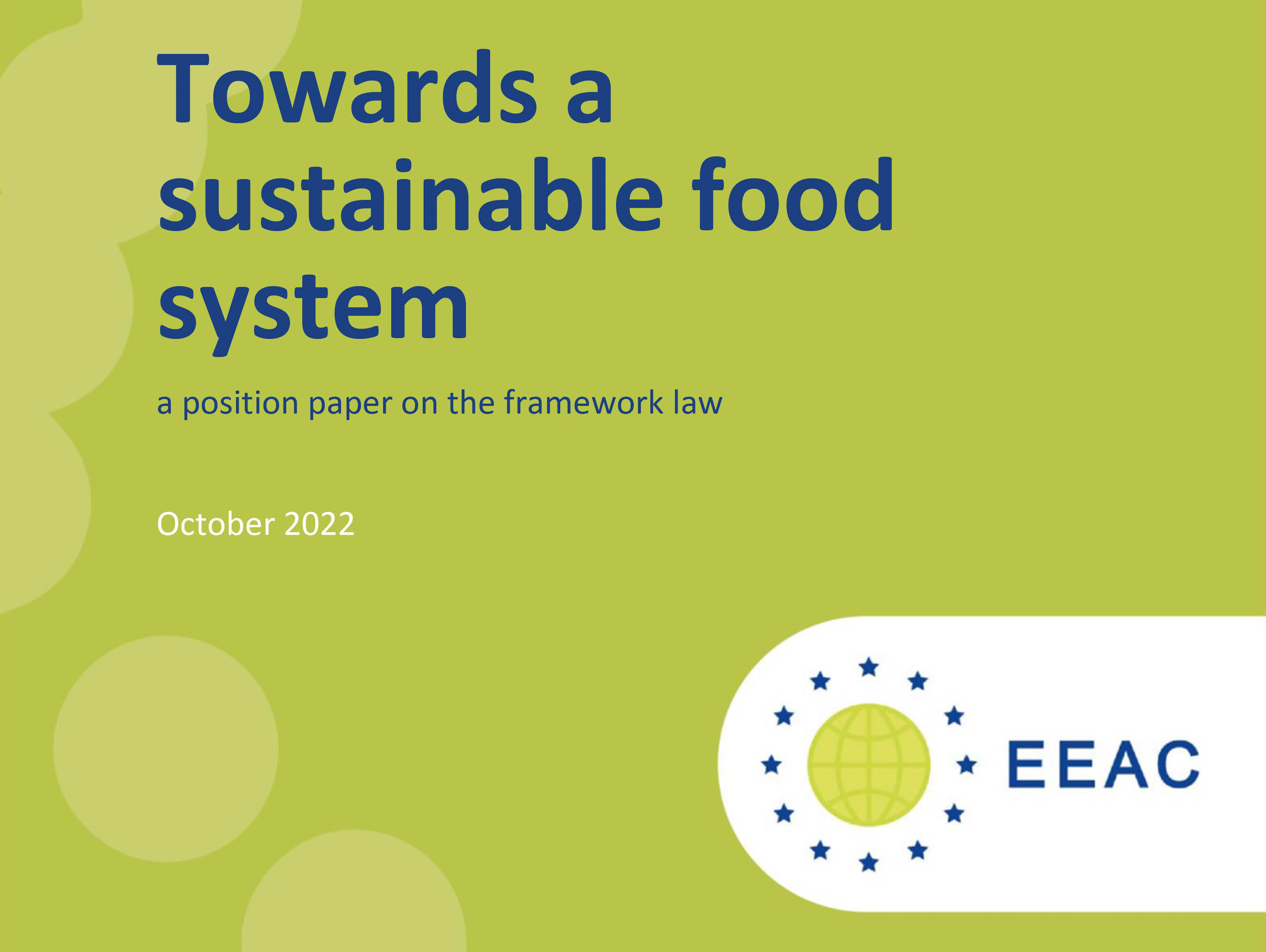
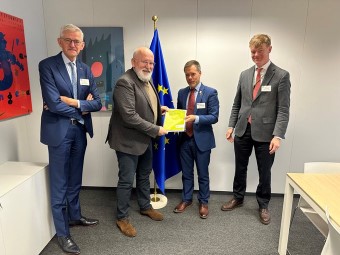

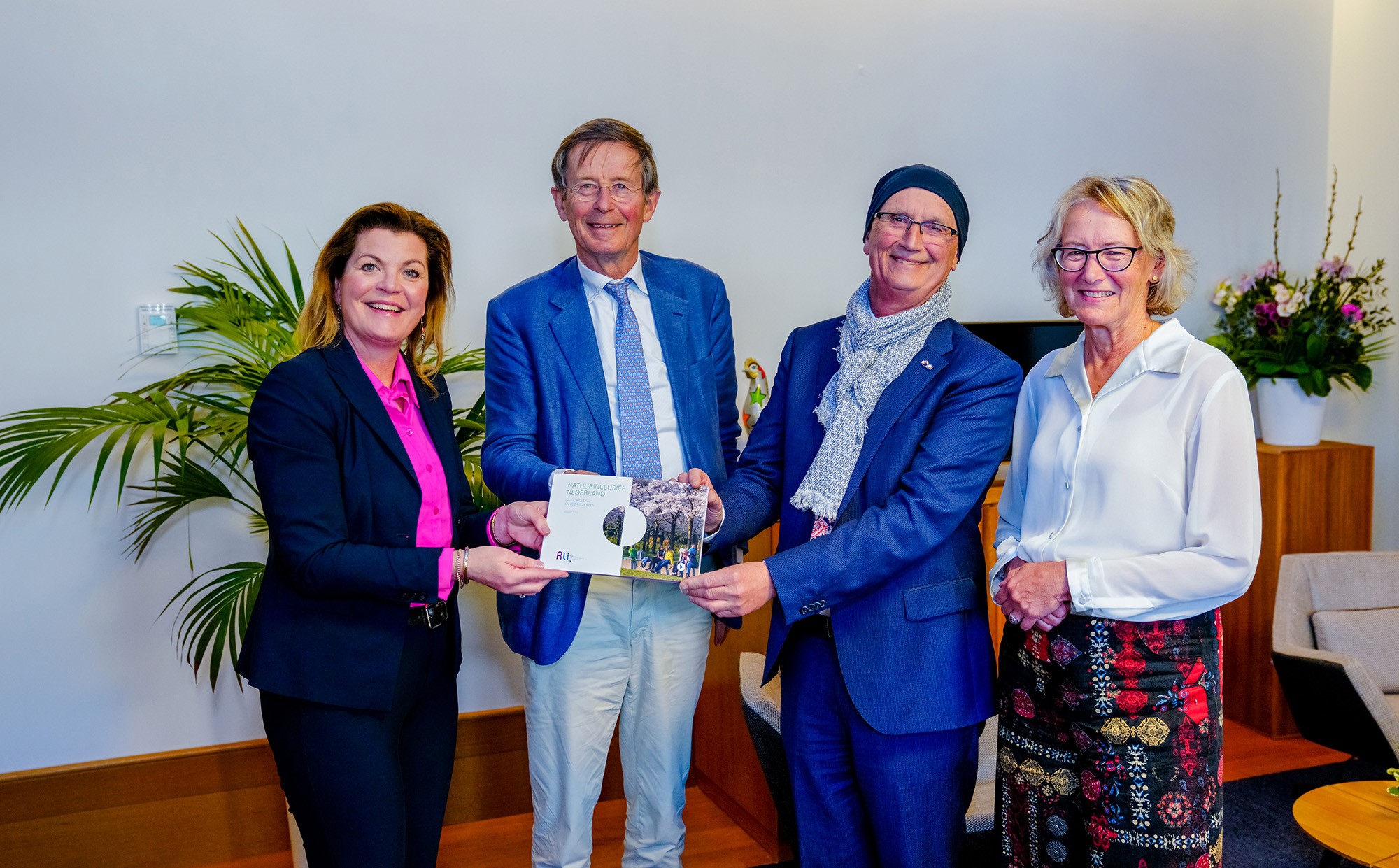 From left: The Minister for Nature and Nitrogen Policy, Christianne van der Wal, receiving the advisory report from Jan Jaap de Graeff (Rli Chair), André van der Zande (Rli Member) and Yvette Oostendorp (Rli Project Leader). Photograph: Marco de Swart
From left: The Minister for Nature and Nitrogen Policy, Christianne van der Wal, receiving the advisory report from Jan Jaap de Graeff (Rli Chair), André van der Zande (Rli Member) and Yvette Oostendorp (Rli Project Leader). Photograph: Marco de Swart